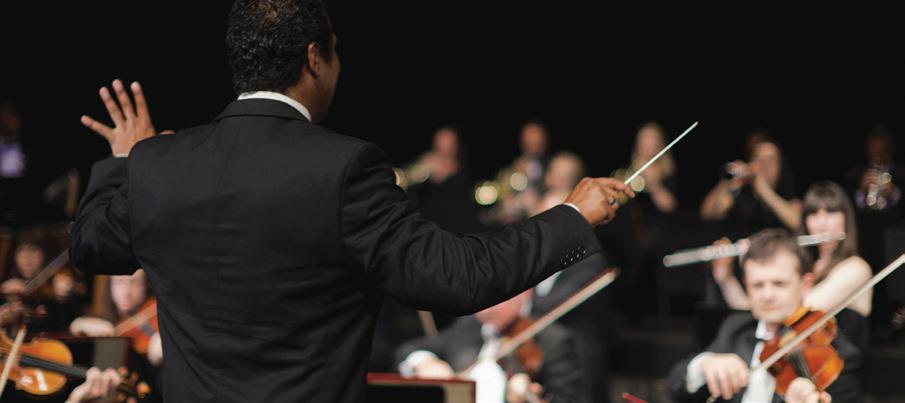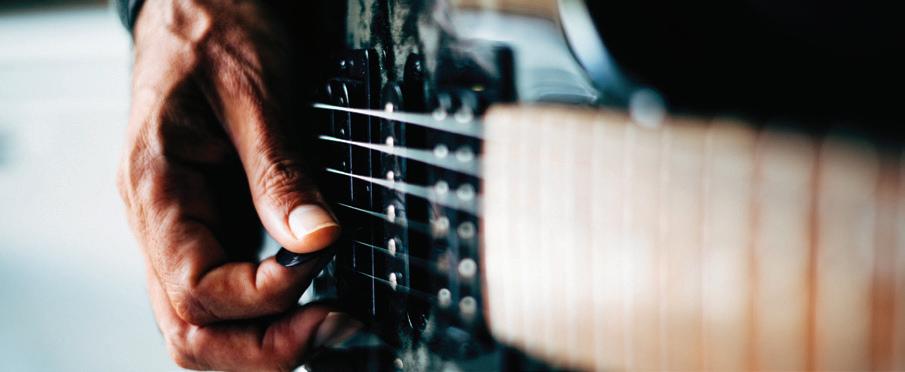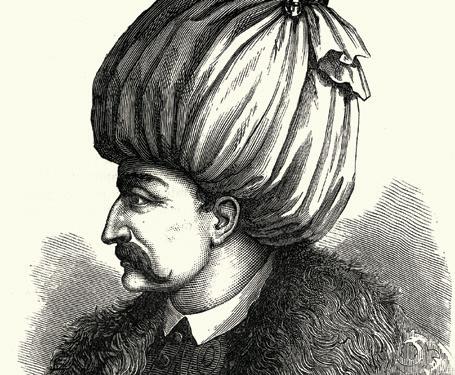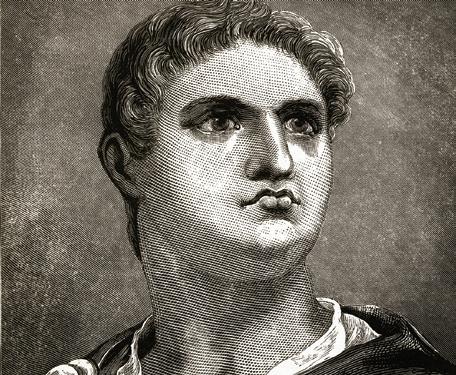
15 minute read
LECTURE COURSES
from Osher | Fall 2022
FALL 2022 SCHEDULE
Lecture courses are taught by the high-caliber instructors and guest speakers for which UCLA is world-renowned. OLLI membership is required to enroll in these courses.
Shakespeare for Beginners and Experts: Part 3
William Shakespeare is widely regarded as the greatest author of plays and poems in the English language. What is not widely recognized is that he wrote for two audiences: playgoers eager for entertainment, and the thoughtful “wiser sort” who were deeply concerned with the political, cultural, religious, and social questions of the day. Shakespeare had a lot to say to both audiences, which accounts for his timeless popularity. In this course, we read four of Shakespeare’s plays and sonnets and discuss them as well-informed lovers of the theater and poetry. We also sift his writings for the provocative ideas—seditious, ungodly and rebellious—that fired the imagination of the “wiser sort” then and now. We read the following plays: The Taming of the Shrew, The Tempest, Love’s Labour’s Lost, The Merry Wives of Windsor; as well as Shakespeare’s Sonnets. This course will be recorded. Students will have access to videos for the duration of the course.
REG# 387550 | INSTRUCTOR: Steve Sohmer DATE/TIME: 8 Mondays, 10am-12pm, September 19-November 14 (no meeting September 26)
BASIC MEMBER FEE: $135 | PLUS MEMBER FEE: $40
REMOTE COURSE: Zoom information is emailed to students two days before the course begins.
American Civil Religion
In 1967, an American sociologist named Robert Bellah published an article claiming that, alongside churches, synagogues, mosques, and temples, there also existed “an elaborate and well-institutionalized civil religion in America.” He observed that Americans embrace a common civil religion with certain fundamental beliefs, values, holidays, and rituals in parallel to, or independent of, their chosen religion. Since his time, the term and its study has flourished; American civil religion is today an academic tool in understanding what was and is the United States of America. In this course, we explore the historical roots of American civil religion, beginning with its origins in Europe and its development in the new world. As with any religion, we deal with the religious archetypes and structures—cosmogonic myths, creation myths, prophets, martyrs, holidays, sacred land, sacred texts, and more.
REG# 387752 | INSTRUCTOR: Phyllis Herman DATE/TIME: 6 Tuesdays, 1-3pm, September 20-October 25
BASIC MEMBER FEE: $115 | PLUS MEMBER FEE: $34
IN-PERSON: UCLA Extension Gayley Center, Room 119A
American Artists Abroad {New Course}
Before the 20th century, Europe was considered the center of the art world. Steeped in artistic tradition and with no structured training available at that time in the US, most American artists journeyed to Paris or other parts of Europe to study. Seeking more opportunity, freedom, and expertise, many of those artists chose to remain abroad. By the late 19th century several of the world's most influential painters were American expatriates. In this course, we look at Samuel Morse (who went to the Louvre every day for more than two years) and other 19th century artists who moved abroad to establish their careers. Among those covered are James McNeil Whistler, Henry Ossawa Turner, John Singer Sargent, and Mary Cassatt.
This course will be recorded. Students will have access to videos for the duration of the course.
REG# 388015 | INSTRUCTOR: Katherine Zoraster DATE/TIME: 6 Wednesdays, 10am-12pm, September 21-November 2 (no meeting October 5)
BASIC MEMBER FEE: $115 | PLUS MEMBER FEE: $34
REMOTE COURSE: Zoom information is emailed to students two days before the course begins.
A World of My Own: Alternate Reality in Movies {New Course}
In this era of social anxiety, political populism, and lack of trust in facts, it is not surprising that the movie industry is doubling down on stories of alternate realities. In this course, we explore time travelling—to alternate versions of our lives with Coherence, Mr. Nobody and into a 1950s TV show with Pleasantville. We also look at stories that seem to offer primarily what their premise suggests—an escape from reality—but also shed light on the social and political contradictions of the world. Whether these alternate realities are created by the minds of powerful narrators, as seen in Orson Welles’s F for Fake; or by traumatized characters, as seen in The Last Command; or are forced onto a character, as in The Truman Show—these parallel universes are not there to remind us that our reality is flawed, but rather that, for all its imperfections, it should still be cherished, fixed, preserved and protected. And no other film could better convey this idea than Lost Landscapes of Los Angeles, an assembly of rare and never-before-seen footage that reconstructs the lost world that once occupied the very same streets of the cities in which we live.
REG# 388258 | INSTRUCTOR: Alex Pirolini DATE/TIME: 6 Wednesdays, 1-3:30pm, September 21-November 2 (no meeting October 5)
BASIC MEMBER FEE: $130 | PLUS MEMBER FEE: $39
IN-PERSON: UCLA Extension Gayley Center, Room 114
Due to advances in technology, what we thought we knew about the fundamentals of cosmology, astronomy, and space exploration is evolving almost daily. In this course, we explore the latest concepts, news, and discoveries regarding multiverses, gravitational waves, black holes, neutron stars, exoplanets, and the beginning of our universe. We also follow the progress of NASA's and ESA's missions to the moon, Mars, and Europa—Jupiter's ice-covered moon, and much more.
REG# 387764 | INSTRUCTOR: Shelley Bonus DATE/TIME: 8 Wednesdays, 6:30-8:30pm, September 21-November 16 (no meeting October 5)
BASIC MEMBER FEE: $135 | PLUS MEMBER FEE: $40
REMOTE COURSE: Zoom information is emailed to students two days before the course begins.
In late 17th-century and 18th-century France, art was used as a powerful tool by the ruling class and others seeking power and change. Through beauty and propaganda, art was used to present power, sway beliefs, extol virtue, and make social commentary. In this course, we look at how French art developed from the Baroque under Louis XIV, through Neoclassicism of the Enlightenment and the French Revolution, to Romanticism emerging at the onset of the 19th century.
This course will be recorded. Students will have access to videos for the duration of the course.
REG# 388035 | INSTRUCTOR: Katherine Zoraster DATE/TIME: 6 Thursdays, 10am-12pm, September 22-October 27
BASIC MEMBER FEE: $115 | PLUS MEMBER FEE: $34
REMOTE COURSE: Zoom information is emailed to students two days before the course begins.
US History, Part 2: America's First Citizen: Ben Franklin and His Times {New Course}
Benjamin Franklin was an international star through much of the 18th century, and, for many Europeans, he represented what it meant to be an American and what might be possible in the new world. Franklin became a Zelig-like figure in American history, one who was seemingly present at all of the key moments of our nation's creation. These moments included the writing of the Declaration of Independence, the signing of the Treaty of Paris (that ended the Revolutionary War), and the creation of the Constitution in 1787, among others. In this course, we focus on Franklin’s extraordinary evolution from a powerful advocate for his king and the British Empire to one of its harshest critics and an extraordinary voice in support of America's revolutionary cause.
This course will be recorded. Students will have access to videos for the duration of the course.
REG# 388312 | INSTRUCTOR: Jared Day
DATE/TIME: 2 Thursdays, 1-3pm, September 22 and 29
BASIC MEMBER FEE: $85 | PLUS MEMBER FEE: $25
REMOTE COURSE: Zoom information is emailed to students two days before the course begins.

Classical Music Masterpieces in Films, Part 2 {New Course}
Classical music has been an integral part of film since the very beginning with the silent-film era. At that time, most individuals in charge of providing music were classically trained musicians. Compositions considered to be “masterpieces” throughout history carry a cultural significance for viewers and thus enrich films with added layers of meaning and complexity. In Part 2 of the series, we view critically acclaimed films that use famous classical masterpieces—outside their original context—to create added layers of meaning. We discuss cultural, historic, and aesthetic issues associated with the application of a specific classical piece in significant films such as Stanley Kubrick’s 2001: A Space Odyssey (1968), Francis Ford Coppola’s Apocalypse Now (1979), Tom Hooper’s The King’s Speech (2010), and more.
REG# 388269 | INSTRUCTOR: Anahit Rostomyan DATE/TIME: 6 Thursdays, 1-3pm, September 22-October 27
BASIC MEMBER FEE: $115 | PLUS MEMBER FEE: $34
IN-PERSON: UCLA Extension Gayley Center, Room 114
Music of France during the 19th Century
Music by German composers such as Beethoven and Wagner typically dominate the history of classical music. However, the music of France has also played a significant role in shaping much of European culture and society. This course focuses on French music beginning in the 19th century, exploring composers and musical traditions through the fin de siècle. We delve deep into the impact of composers such as Hector Berlioz, Georges Bizet, Camille Saint-Saëns, Gabriel Fauré, Claude Debussy, Maurice Ravel, and many others.
This course will be recorded. Students will have access to videos for the duration of the course.
REG# 387771 | INSTRUCTOR: Ryan Shiotsuki DATE/TIME: 8 Fridays, 10am-12pm, September 23-November 18 (no meeting November 11)
BASIC MEMBER FEE: $135 | PLUS MEMBER FEE: $40
REMOTE COURSE: Zoom information is emailed to students two days before the course begins.
In the history and reception of classical music, we often focus primarily on composers, their lives, and their work throughout their career. Whether we go to the concert hall or listen at home, an integral part of the listening experience involves encounters with different performers and interpretations that bring the musical composition to life. As time passes, performance traditions and values vary from artist to artist. In this course, we focus primarily on the role the conductor plays in shaping the music and orchestral repertoire we hear. Beginning with the acoustic recording era, we explore the performances of conductors spanning the 20th century to the present day, from Arthur Nikisch, Wilhelm Furtwängler, and Arturo Toscanini to Leonard Bernstein, John Eliot Gardiner, and Gustavo Dudamel.
This course will be recorded. Students will have access to videos for the duration of the course.
REG# 388173 | INSTRUCTOR: Ryan Shiotsuki DATE/TIME: 8 Fridays, 1-3pm, September 23-November 18 (no meeting November 11)
BASIC MEMBER FEE: $135 | PLUS MEMBER FEE: $40
REMOTE COURSE: Zoom information is emailed to students two days before the course begins.
Beyond the Headlines {Speaker Series}
Pulled from today’s headlines, this exclusive speaker series offers an in-depth analysis of significant contemporary issues. Each week, an expert from the political, social, technological, or economic spectrum provides a 1-hour lecture focused on a major global, national, or local issue. Afterwards, students have the opportunity to participate in a Q&A session with the speaker. A list of speakers for this term will be available online approximately one month before the course begins.
This course will be recorded. Students will have access to videos for the duration of the course.
"Back to School" Special Promotion: $100 for all OLLI members
REG# 388879 | INSTRUCTOR: James Aldinger DATE/TIME: 8 Tuesdays, 10:30am–12pm, September 27–November 15 FEE: $100 for all members
REMOTE COURSE: Zoom information is emailed to students two days before the course begins.
This fall, we invite enrolled students to watch the speakers live in the dedicated screening room at the UCLA Extension Gayley Center in Westwood, room 121AB (adjacent to the OLLI member lounge).
Spice: The History of a Passion {New Course}
In this course we take a spirited inquiry into the complex and compelling history of our pursuit of spices, not just for food but also for medicines, magic, religious ceremonies, showing off, and sex. Spices have underwritten the economies of kingdoms and countries, they have been the cause of wars, and they have produced wealth that facilitated the production of great art. The politics of spices provoked Europe's Age of Exploration, which resulted in the discovery of new worlds. We explore how the spice trade forged an enduring, often exploitative, relationship between the Europe and Asia and the Western Hemisphere.
REG# 388120 | INSTRUCTOR: Carlo Coppola DATE/TIME: 8 Mondays, 10am-12pm, October 3-November 21
BASIC MEMBER FEE: $135 | PLUS MEMBER FEE: $40
REMOTE COURSE: Zoom information is emailed to students two days before the course begins.
The guitar has been an integral instrument in jazz going back to the late 19th century when it was the musical voice of the blues. It’s an incredibly versatile instrument that can shout, whisper, swing, and rock in the hands of talented musicians like Kenny Burrell, Wes Montgomery, George Benson, Bill Frisell, Barney Kessell, and Stanley Jordan. In this course we explore iconic jazz guitarists from beginning with the 1930s and 1940s, when Eddie Lang took the guitar from a rhythm instrument to a featured voice in bands. In the same period, Django Reinhardt, the Belgian-born Romani-French guitarist, created a unique sound with his Hot Club of France Quintet. We also learn about Texan Charlie Christian and his electrically amplified gingering guitar style which totally altered the sound and use of the guitar in jazz. We then move into the early 1950s to explore Les Paul’s system that allowed overdubbing and multiple voicing which again expanded the instrument. We also cover the Brazilian-influenced soft Latin sound that guitarists like Laurindo Almeida and Charlie Byrd followed. Learn about how the guitar became the lead voice of countless bands as well as becoming the instrument that best complements the human voice.
This course will be recorded. Students will have access to videos for the duration of the course.
REG# 388881 | INSTRUCTOR: Pat Collins
DATE/TIME: 7 Mondays, 1-3pm, October 3-November 14
BASIC MEMBER FEE: $125 | PLUS MEMBER FEE: $37
REMOTE COURSE: Zoom information is emailed to students two days before the course begins.
The 2022 November Elections {New Course}
In this course Bob Stern is joined by expert guest speakers each week to discuss what's on the November ballot, with particular emphasis on California’s statewide elections, controversial California ballot propositions, the gubernatorial and US Senate races, local competitive elections, and those of interest throughout the country. We take notice of the competitive elections for attorney general and state controller, as well as the City of LA mayor’s race and the LA County sheriff’s race. We also look at campaign financing, the initiative process, and reforms to our election system. The final class analyzes the November 8 election results and their meaning, especially for the 2024 presidential election.
This course will be recorded. Students will have access to videos for the duration of the course.
REG# 387824 | INSTRUCTOR: Bob Stern
DATE/TIME: 6 Thursdays, 1-3pm, October 6-November 10
BASIC MEMBER FEE: $115 | PLUS MEMBER FEE: $34
REMOTE COURSE: Zoom information is emailed to students two days before the course begins.

The Blues: How Three Chords Became Rock and Roll
Rock and roll exists because of the blues. This course explores how songs sung by enslaved Africans in the southern US became gospel music, the acoustic blues of the Mississippi Delta, the electrified sounds of Chicago, and the rhythm and blues associated with Memphis. When this music became mainstream in the fifties, rock and roll was born, creating careers for artists like Aretha Franklin, the Drifters, and Elvis. The blues inspired rock groups on both sides of the Atlantic Ocean, the soulful sounds of Motown and Philadelphia, and hip hop and rap music. In this course we listen to music clips to understand the evolution of rock and roll and how it produced social change and technological advancement worldwide. Historic recordings are presented, including the Georgia Sea Island Singers recorded by Alan Lomax, Delta blues artists, Chicago blues, and Memphis R & B.
This course will be recorded. Students will have access to videos for the duration of the course.
REG# 387551 | INSTRUCTOR: Andrew Muson
DATE/TIME: 8 Tuesdays, 1-3pm, October 11-November 29
BASIC MEMBER FEE: $135 | PLUS MEMBER FEE: $40
REMOTE COURSE: Zoom information is emailed to students two days before the course begins.
Post-War Paris: The Rebirth
Four years of Nazi occupation dampened but never extinguished the creative spirit of Paris. When Paris was liberated in 1944, that spirit exploded in many directions, making the city once again a cultural mecca. Existentialism and feminism influenced literature, film, and music. After the gloom and shortages of wartime, the fashion industry came back to life and Parisian playwrights reinvented theatre. Popular music incorporated biting social criticism; the words of great poets and jazz became the music of the young. In this course we explore this amazingly vital cultural milieu that flourished amid enormous political tensions.
REG# 387552 | INSTRUCTOR: Mort Kamins
DATE/TIME: 6 Tuesdays, 1-3pm, November 1-December 6
BASIC MEMBER FEE: $115 | PLUS MEMBER FEE: $34
IN-PERSON: UCLA Extension Gayley Center, Room 114


Biography of Europe, Part 3: Suleiman the Magnificent and the Apex of the Ottoman Empire in Europe {New Course}
A contemporary of Henry VIII, Sultan Suleiman the Magnificent led the Ottomans to their geopolitical apex—even as he and his immediate heirs sowed the seeds of centuries of Ottoman decline. In this course, we examine one of the least understood aspects of Renaissance-era European history—the extraordinary impact of the Ottoman Empire on people and events in the 16th century. We also explore the aspects of Ottoman rule that made them so effective, as well as the sources of their decline in later centuries. Sulieman's rule contained both the elements of success and the seeds of failure to come.
This course will be recorded. Students will have access to videos for the duration of the course.
REG# 388313 | INSTRUCTOR: Jared Day
DATE/TIME: 2 Mondays, 1-3pm, November 28 and December 5
BASIC MEMBER FEE: $85 | PLUS MEMBER FEE: $25
REMOTE COURSE: Zoom information is emailed to students two days before the course begins.
Rome and Its First Emperors: From Augustus to Nero
{New Course}
The Roman state was a Republic for 500 years before Augustus (Rome's first emperor) created a Roman autocracy that replaced the Republic's representative democracy. In this course we examine the first 100 years of Rome's empire. We explore how Augustus built his imperial regime, the tools he used to maintain it, and the reasons Romans accepted it. We then look at Augustus's successors—the emperors Tiberius (14–37 AD), Caligula (37–41), Claudius (41–54) and Nero (54–68)—to consider how imperial power evolved under them and why Romans accepted concentrating absolute power into the hands of one man.
This course will be recorded. Students will have access to videos for the duration of the course.
REG# 388190 | INSTRUCTOR: Edward Watts DATE/TIME: 2 Fridays, 10am-12pm, December 2 and 9
BASIC MEMBER FEE: $85 | PLUS MEMBER FEE: $25
REMOTE COURSE: Zoom information is emailed to students two days before the course begins.






